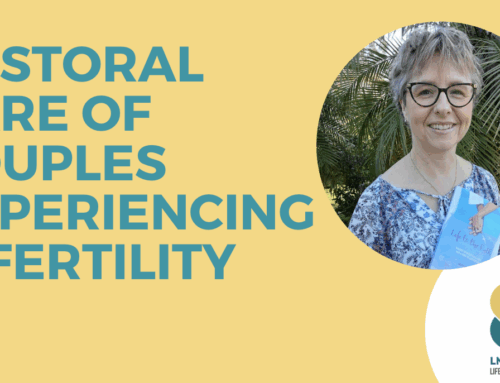Recent research that was picked up in the New York Times and multiple other media outlets has shown that couples watching movies together and then discussing can gain an equivalent level of ‘divorce proofing’ as participating in some well-regarded ‘therapy intervention programs’.
The study, reported in the Journal of Consulting and Clinical Psychology (Vol. 81(6), Dec 2013, p949-961), followed 174 newly married couples over a three year period. The couples participated in one of the following four experiences:
- The CARE program; focusing on building skills in acceptance
- The PREP program; focusing on teaching skills for managing conflict and resolving problems
- A self-directed ‘Relationship Awareness’ program; involving watching five’ relationship focussed movies’ followed by some structured discussion
- A Control Group who did not undertake any form of relationship training
The study found that almost one-in-four (24%) of couples in the Control Group were separated or divorced within three years whereas only about one-in-ten (11%) of those that participated in any of the three relationship training activities were separated or divorced within the same period.
Perhaps the most surprising finding (and certainly the headline grabbing one) was that the group watching and discussing just five movies had similar outcomes as those participating in the PREP and CARE programs.
The full paper can be found HERE while the Abstract is included immediately below for a quick overview.
Abstract
Objective: Evidence in support of skill-based programs for preventing marital discord and dissolution, while promising, comes mainly from studies using single treatment conditions, passive assessment-only control conditions, and short-term follow-up assessments of relationship outcomes. This study overcomes these limitations and further evaluates the efficacy of skill-based programs.
Method: Engaged and newlywed couples (N = 174) were randomly assigned to a 4-session, 15-hr small-group intervention designed to teach them skills in managing conflict and problem resolution (PREP) or skills in acceptance, support, and empathy (CARE). These couples were compared to each other, to couples receiving a 1-session relationship awareness (RA) intervention with no skill training, and to couples receiving no treatment on 3-year rates of dissolution and 3-year trajectories of self-reported relationship functioning.
Results: Couples in the no-treatment condition dissolved their relationships at a higher rate (24%) than couples completing PREP, CARE, and RA, who did not differ on rates of dissolution (11%). PREP and CARE yielded unintended effects on 3-year changes in reported relationship behaviours. For example, wives receiving PREP showed slower declines in hostile conflict than wives receiving CARE, and husbands and wives receiving CARE showed faster declines in positive behaviours than husbands and wives receiving PREP.
Conclusions: These findings highlight the potential value of cost-effective interventions such as RA, cast doubt on the unique benefits of skill-based interventions for primary prevention of relationship dysfunction, and raise the possibility that skill-based interventions may inadvertently sensitize couples to skill deficits in their relationships. (PsycINFO Database Record (c) 2013 APA, all rights reserved)
Some comments and interpretations on the findings
There are a number of interesting implications from this unusual study.
- While the population selected for this study was diverse and not obviously biased, one needs to remember the sample size is small. So while the overall conclusions appear sound, one needs to be careful in over-interpreting them, particularly when looking into sub-groups for more detailed patterns and conclusions.
- What struck us was the very high rate of marriage breakdown in the control group; one-in-four couples being separated or divorced (not just struggling) within three years. To us, this seems to be the elephant in the room but interestingly it drew no real comment. Think about it for a moment; all these couples started out with high ambitions for their marriage – how desperately sad that so many come unstuck so quickly.
- The fact the ‘movie watchers’ got similar benefits to those participating carefully designed programs was at first a bit of a surprise. However, with careful reading it is not only not surprising, it is consistent with our own experiences. To be clear, couples were not just ‘going to the movies’ as some of the media headlines would suggest.
- They first attended a one hour presentation on relationship dynamics,
- Then over the course of five weeks they watched one movie a week from a collection chosen to provide insights into real relationship dynamics… so they weren’t watching fanciful Rom Coms or Action Adventures,
- The subjects used a structured discussion guideline discussing the movie for about an hour together each week. The questions themselves were instructive as they implicitly named desirable and problem behaviours. This meant that the couples had a clear ‘expert opinion’ as to what constituted appropriate behaviours in marriage rather than being left to determine for themselves whether the characters in the film where handling difficulties well. The more than one hundred suggested movies, along with the discussion questions used in the study are available from www.couples-research.com
- So it is not surprising that there would be benefit from this. While less demanding than attending a complex course some 18 hours of contact time, and not focusing on specific skill transmission, this was still a well-constructed relationship building intervention.
- It is encouraging because it starkly demonstrates that it takes very little to materially reduce (more than halve) the risk of divorce. Watching and thoughtfully discussing a movie together each week for just five weeks every three years can hardly be described as ‘hard labour’. It’s taping into the same benefits arising from ‘date nights’ which has become part of our cultural lexicon; and again something that is hardly onerous. When one remembers that the research shows that the average couple spends about 30 seconds a day in intimate personal conversation (and we think that is an overestimate), it is perhaps not surprising that these ‘low demand’ interventions work. The simple maths of it suggests the ‘movie watchers’ would have doubled the normal amount of intimate conversation over the entire three year period. The fact that it was well structured no doubt gave it a further multiplier effect.
- It’s empowering for newly married couples to understand this. Having good relationship skills no doubt helps, but a first step is simply being aware of the dynamics of the relationship itself. With awareness, couples, irrespective of their skills, can actively choose how to respond to situations; they are enabled through awareness alone. However, without good relational awareness, all the skills in world are useless as you miss the queues to use them over and over again. It’s also empowering as it encourages couples that even small investments in their relationships could have a great pay-off.
- The success of the “Movie Marriages” intervention can be attributed in part to the following factors, many of which can be adapted into traditional interventions:
- The human brain has evolved to learn through stories. In pre-literate societies, story-telling was how history was preserved and wisdom transferred to the next generation. This is why parables in the scriptures and testimonials or case studies in marriage education are such an effective educational technique. The movies also taught relationship principles through the medium of stories.
- Discussing difficulties in a relationship is confronting – it’s a challenge to simply raise the topic for most couples. The movie characters gave couples a way of approaching their own difficulties by discussing the situation of the characters; it’s not as personal, but can become so easily if the discussion is staying on track and not getting heated. In this way, the movies operated like an ‘icebreaker’ providing the couple with a soft entry into a difficult discussion. This effect can also be achieved in traditional marriage education by the presenter telling a story of their own difficulties (testimonial) or others (case study). These are proved strategies for effective learning.
- As the audience, the couples were the objective viewer of the movie marriage situation. This helps them to consider that their own blinkered perspective on their challenges might not be the only or the most accurate one. Some couples in interviews commented how the foibles of the characters reminded them of themselves and they were able to laugh about it while still appreciating that it was difficult for them.
- It’s a constant challenge for couples – appreciating their spouse’s point of view. Movies help spouses see and experience the situation from both sides and therefore give them a better understanding of their spouse’s perspective. Sometimes, it’s easier to hear your spouse’s point of view when it comes from a third party first. Many traditional marriage education courses address this limitation by having couple presenters so that the perspective of both husband and wife is represented.
- As marriage educators, we need to stop thinking the only way to teach is to put people in a classroom, talk as experts and give them exercises. It’s a tried and true method and it works, but it is not the only method. Hollywood and advertisers have known for years they can teach and change behaviour through their medium. We all too often decry the impact of the ‘media’ on attitudes, but then we shun these tools for our own purposes. We had direct experience of this some eight years ago when we moved the delivery of the core teaching content on our marriage preparation courses from presenting couples to DVD – even when working in one-on-one couple mentoring. The reaction amongst our fellow marriage educators was initially horror, but the feedback from the couples was clear; these tools, used thoughtfully and in a structured manner, work.
As marriage educators we should be encouraged by this study. It not only yet again reconfirms educational intervention programs work, we can be encouraged to look to more innovative modalities for the types of the intervention we deploy. It also supports our view that well-structured, ‘low-demand’ (not to be confused with ‘content-lite’) programs have a legitimate place along-side their more demanding counterparts; particularly when one considers ‘low demand’ courses are likely to have a far higher uptake amongst married couples.
More links:
New York Times: Movie Date Night Can Double as Therapy | February 17, 2014
Rochester Democrat & Chronicle: UR profs theory: Couples can avoid divorce by watching movies | February 17, 2014
Los Angeles Times: Found! Scientific proof that RomComs can save your relationship. | February 14, 2014
Time Magazine: Forget Couples Therapy, Just Watch a Romance Movie | February 13, 2014
Sydney Morning Herald: Could watching a romcom together save your marriage? | February 12, 2014
SmartLoving: Movie Marriages | February 27, 2014




